NRL Concussion debate: Former footy star unemployed, housebound and suffers depression
Brett Horsnell’s mum video taped every game the former league star played and when they recently watched them back, an awful concussion truth came to light.
NRL
Don't miss out on the headlines from NRL. Followed categories will be added to My News.
This is the former NRL star who copped 51 on-field concussions – and is now “shitt scared” of dying.
Former Parramatta, Gold Coast and South Queensland Crushers star Brett Horsnell has been diagnosed with CTE – Chronic Traumatic Encephalopathy – through repeated head knocks during a 154-game first grade career between 1989 and 1998.
He now lives on a $500-a-week disability pension, is unemployed, housebound, suffers depression and needs to be bathed by his partner, Clarissa Leaver.
Stream selected Fox League shows on Kayo Freebies completely free this June including NRL 360, Sunday Night with Matty Johns, Big League Wrap & more. No Credit Card. No Brainer. Register Free Now >
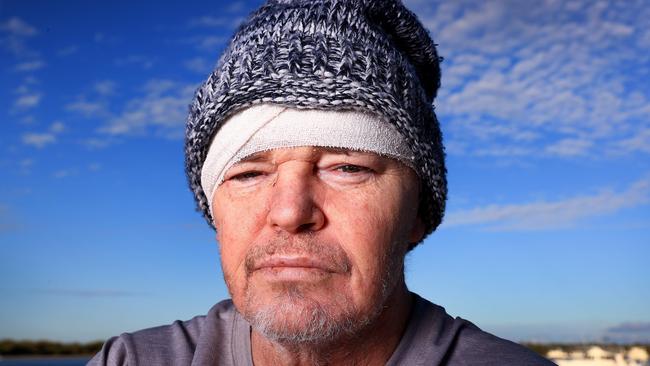
And his post-footy nightmare won’t stop. Just last Sunday, Horsnell was released after four days at Pindara Private Hospital, Benowa, on the Gold Coast, where surgeons drilled a hole in his skull to ease bleeding on the brain.
Named several times as 18th man for Queensland’s State of Origin side, Horsnell said neurology results have all but proven his brain disease – and ongoing medical issues – was caused by football concussions.
CTE is medically stated as “a progressive and fatal brain disease associated with repeated traumatic brain injuries.”
The life expectancy of a person with CTE is 51. Hornsell turned 51 in April.
“That’s why I’m f***ing shit scared,” he said.
“I’ve been to four neurologists and been diagnosed with CTE, which is a brain disease from concussions.
“They can’t diagnose it 100 per cent until after death but they have ruled out Parkinson’s, they’ve ruled out dementia and, given the scans I’ve had on my brain, there’s nothing else other than footy concussions.
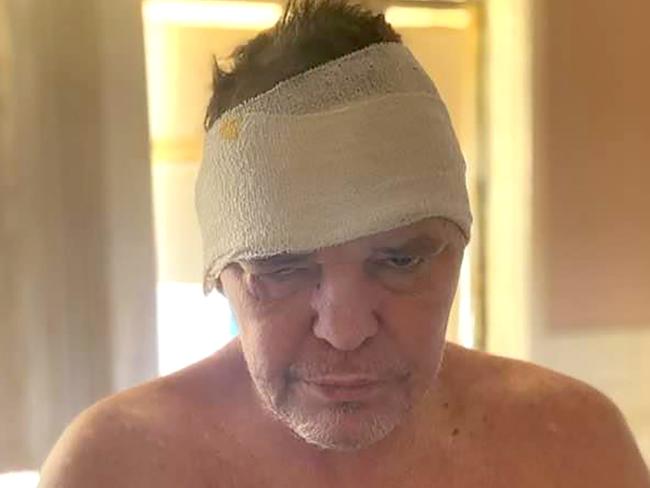
“In the last three years, I have gone backwards horribly. I was a fit young bloke and now I’m just housebound. I have trouble with crowds. It’s like depression. I’m on a disability pension that’s $500 a week. That’s my only income. I’m not working. I’m lucky I’ve got NDIS.
“I get vertigo really badly – my partner has to wash me, bathe me, it’s embarrassing in a way. There are a lot of things I can’t do myself. I accepted all my injuries but a brain disease is a different thing. Life’s not enjoyable at the moment.
“I had bleeding on the brain just near the skull. Doctors last week put a hole in my skull to release the pressure. It bled near the skull so I was lucky. I fell over because of the vertigo. I get vertigo from the concussions.
“One bad fall and I can … I can’t think of the word, Jesus, this is my memory … I can bleed out and then have a stroke.
“There is so much bruising on the brain, it’s ridiculous. The neurologists have found so many spots. It’s part of the CPE disease, which is what the American Gridiron players get.”
A former Australian Schoolboys star, Hornsell played in the NSWRL and NRL competitions, representing Gold Coast in 82 games, 38 with South Queensland Crushers and a further 34 with Parramatta. He was a member of the Eels side which contested the 1997 and 1998 semi-final series.

Horsnell does not want rugby league to become “touch footy” but did praise the NRL’s strict crackdown on high tackles.
“I am supportive but I don’t want the game to become touch footy either, mate,” he said.
“I’m a bit old school like that. But as my neurosurgeon said, one bad head knock is one too many. The protocols in place where they are giving blokes weeks off is much better.
“In our day after being concussed, they used to pick you up and throw you straight back out there again. I applaud the NRL. Some of my concussions were accidental and I don’t know how you stop, that’s the problem.
“It’s a real concern. I was never an Australian player, I was 18th man for Queensland a few times but I was just a first grader. I don’t know how many concussions I copped before I got to play senior football. I was playing A Grade in the bush when I was 15.”
Hornsell had sought to take legal action against Parramatta over his head injuries but has now elected against a courtroom battle.
He approached the NRL three years ago seeking financial assistance but, in his words, was told to “piss off.”
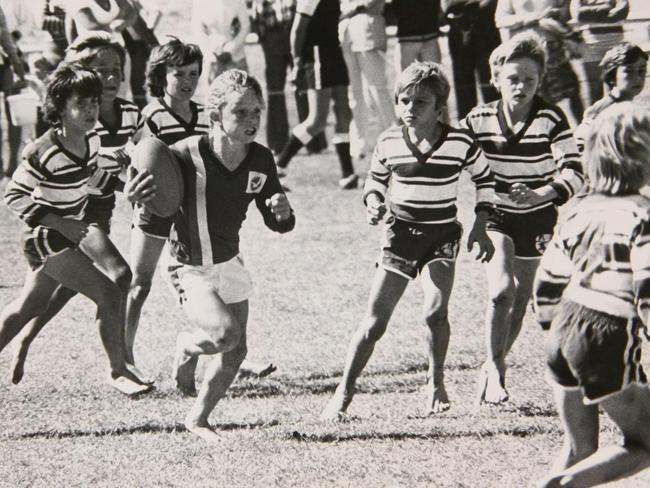
It came after his mum, Joy, trawled tirelessly through all his games on video to determine how many times her son had been concussed. It totalled 51.
“Mum used to video all my games on VHS, all my NSWRL and NRL matches,” Horsnell said.
“We went through hundreds of hours of video and found them – 51. Mum is devastated. She’s 86, she’s distraught. She is crying all the time.
“They had the head bin back when I was playing, it was called the blood bin. They could have used that a bit more for other things.
“You used to go to the doctor on the Monday after a concussion and he’d go: ‘Are you okay? You got headaches?’ and you’d go ‘no’, you’d lie to him.”
Horsnell did finally secure a medical pay out from the NSW Government. He wouldn’t reveal the amount but did claim most of the money has subsequently been spent on medical expenses.
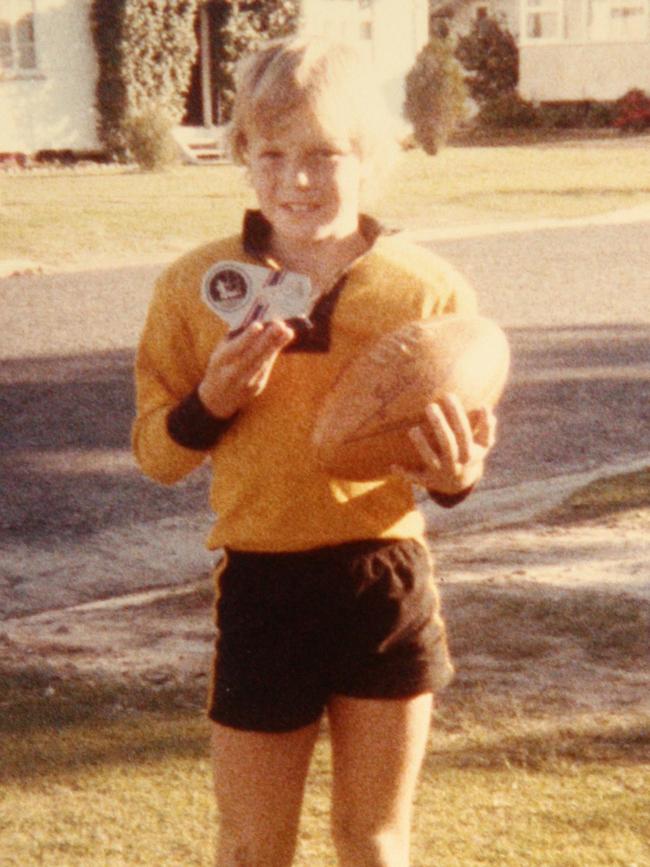
“If you get a permanent brain injury or sports injury in NSW, you get a pay out,” Horsnell said.
“It wasn’t much and it’s gone now on medical bills.
“I went to the NRL for medical about three years ago but they told me to piss off. My lawyer did that. It was when Todd (Greenberg, former NRL CEO) was there. I was disappointed. If I was a Brad Fittler or a Joey Johns, I’m sure I would have received some help.
“I didn’t want to take legal action. I didn’t want the spotlight. I just wanted some help. I’m battling away but I wouldn’t change a thing because it was what I did. I loved playing and I still watch my footy. You have to fight on and do your best.”
Concussion expert: How the NRL failed Boyd Cordner
Australian neuroscientist Dr Alan Pearce has urged the NRL to suspend players for 30 days after suffering a concussion, warning some of the game’s biggest names are currently being sent back into action while still suffering brain trauma.
Only a day after Roosters captain Boyd Cordner announced his retirement due to ongoing head knocks, Dr Pearce suggested the code’s current ‘High Shot Crackdown’ was not addressing the real issue regarding concussions in rugby league.
Instead, one of the nation’s leading head trauma experts has urged ARLC chairman Peter V’landys to sideline all players who suffer a concussion for at least three games, and preferably up to a month, until more research can be done on concussion “biomarkers”.
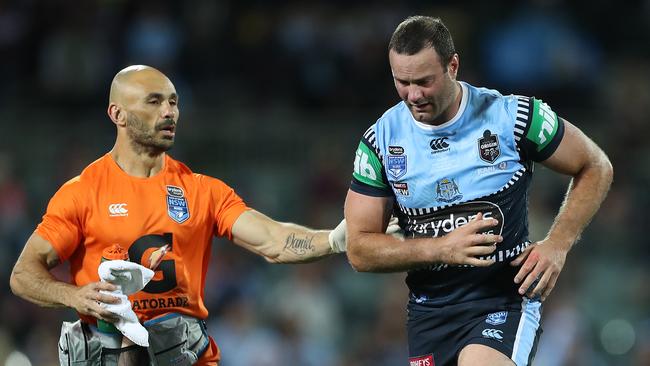
Dr Pearce warned that under the current HIA guidelines, players were effectively being cleared to play while still suffering a brain injury.
He used Cordner as a case in point, reminding how during his last game with the NSW Origin side, the Blues captain was cleared to go back into action despite suffering a concussion so bad it has since proved the catalyst for his retirement.
Elsewhere, Roosters No.9 Jake Friend also announced his premature retirement in April, while Melbourne fullback Ryan Papenhuyzen also remains sidelined, and appears increasingly unlikely to represent NSW Origin this year, after suffering a serious head knock during Magic Round.
Other players with ongoing issues include Cronulla captain Wade Graham and Roosters playmaker Luke Keary.
“Right now players are coming back from concussions far too quickly,” Dr Pearce warned.
“Currently, everything is based on a player’s symptoms. It’s what has been used (to clear players) for 20 years.
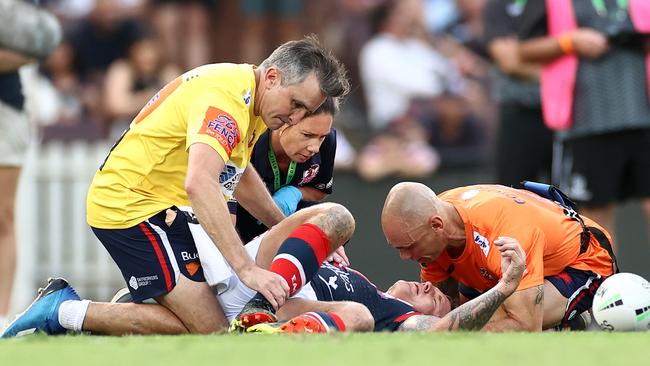
“But research is now showing symptoms aren’t the indicator for recovery.
“What we’re seeing is that even when an individual is no longer showing any concussion symptoms, the brain still isn’t fully recovered; the underlying neurons and cells still aren’t working properly.
“We actually have research showing the brain’s physiology doesn’t recover for 28 days. And that’s why I think players need to miss three games, and possibly four.”
Quizzed on the problems currently being faced by the likes of Cordner and co, Dr Pearce continued: “The player isn’t reporting any symptoms, the doctor can’t see any symptoms, so everyone says ‘OK, you’re right to go’.
“But they aren’t right to go.
“With concussion, symptoms can resolve if not within minutes, then somewhere between seven to 10 days.
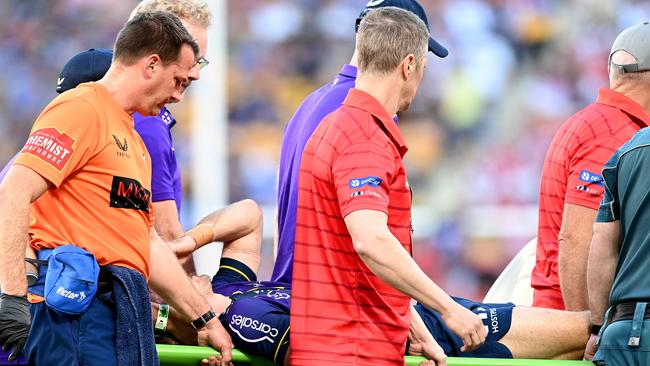
“But again, we have research showing the brain’s physiology doesn’t recover for 28 days.
“And therein lies my concern.
“Because the players aren’t going back to the game fully functional, which then increases the risk of further injury to the brain.”
Dr Pearce also suggested the code needed to make genuine investments into “biomarkers” like both blood and saliva testing, plus Transcranial Magnetic Stimulation (TMS) -- which he used for groundbreaking research on the impact of concussion on NRL players in 2015.
He added that NRL players, as well as administrators, also needed to buy in and realise missing an extra fortnight now would not only extend their careers but improve their lives post-football.
“We now have players retiring prematurely because they’ve been coming back too quickly,” he said.
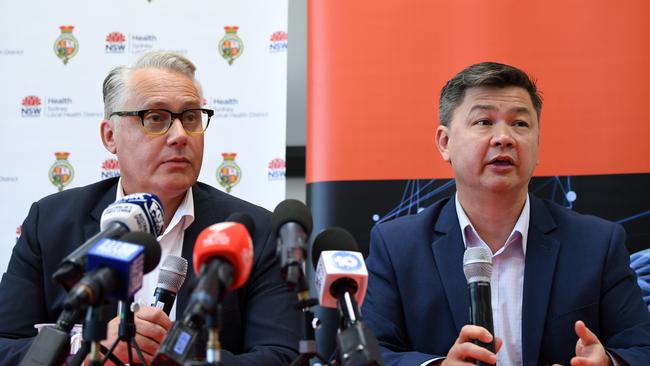
“And, yes, I understand it’s a real inconvenience to be out for a month.
“But it might also give your career another five years.
“Also, if players do have a brain injury then they need to be fully recovered before they come back.
“With an injury to, say, your knee, maybe you can go back out there and play at 80 per cent, manage your way through a game.
“But with the head, it’s a whole different ball game.
“Because I know playing on with a knee injury, it won’t give you dementia.”
More Coverage
Originally published as NRL Concussion debate: Former footy star unemployed, housebound and suffers depression




